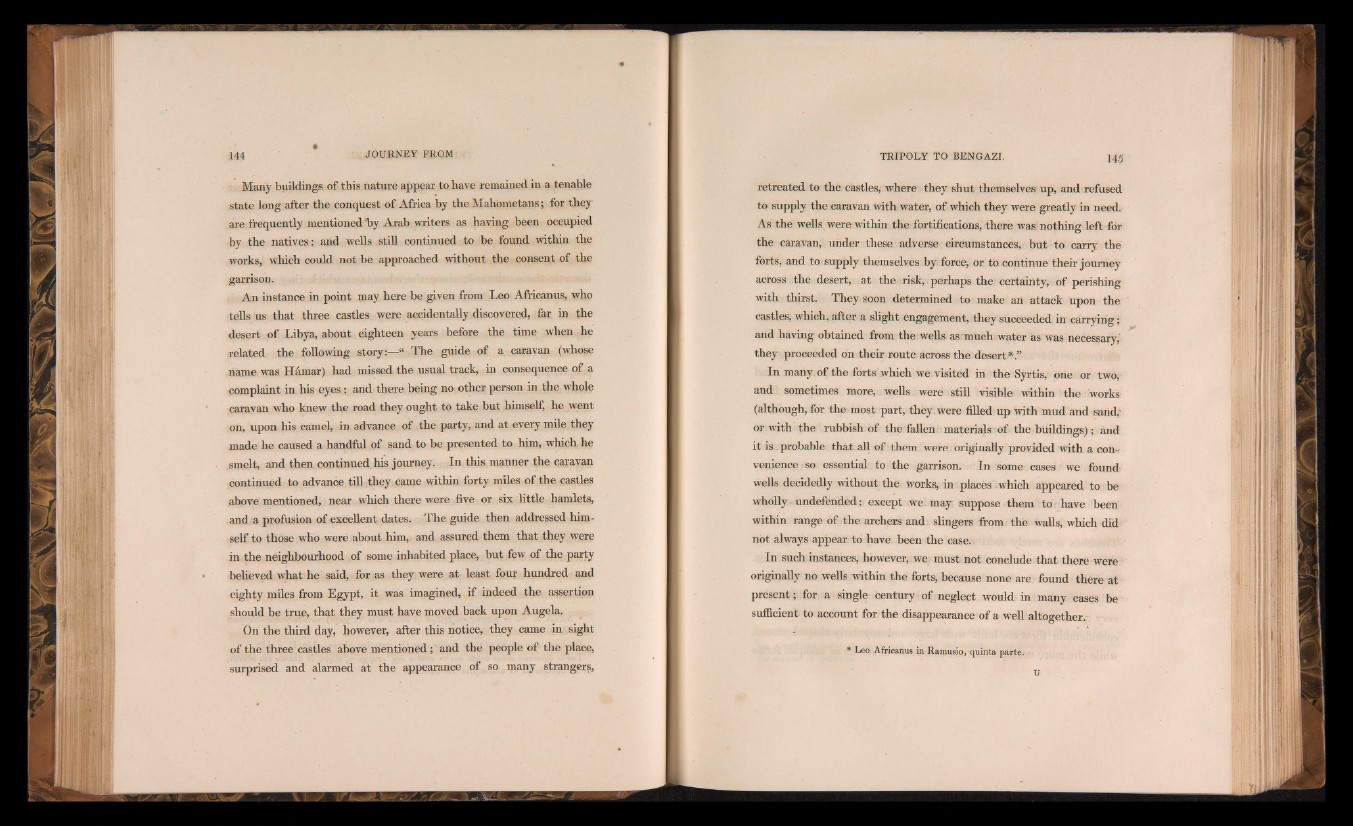
Many buildings of this nature appear to have remained in a tenable
state long after the conquest of Africa by the Mahometans; for they
are frequently mentioned *by Arab writers as having been occupied
by the natives; and wells still continued to be found within the
works, which could not be approached without the consent of the
garrison.
An instance in point may here be given from Leo Africanus, who
tells us that three castles were accidentally discovered, far in the
desert of Libya, about eighteen years before the time when he
related the following story:—“ The guide of a caravan (whose
.name was 11 iiniar) had missed the usual track, in consequence of a
complaint in his eyes; and there being no other person in the whole
caravan who knew the road they ought to take but himself, he went
on, upon his camel, in advance of the party, and at every mile they
made he caused a handful of sand to be presented to him, which he
smelt, and then continued, his journey. In this manner the caravan
continued to advance till they came within forty miles of the castles
above mentioned, near which there were five or six little hamlets,
and a profusion of excellent dates. The guide then addressed himself
to those who were about him, and assured them that they were
in the neighbourhood of some inhabited place, but few of the party
believed what he said, for as they were at least four hundred and
eighty miles from Egypt, it was imagined, if indeed the assertion
should be true, that they must have moved back upon Augela.
On the third day, however, after this notice, they came in sight
of the three castles above mentioned ; and the people of the place,
surprised and alarmed at the appearance of so many strangers,
retreated to the, castles, where- they shut themselves up, and refused
to supply the caravan with water, of which they were greatly in need.
As the wells were within the fortifications, there was nothing left for
the caravan, under these adverse circumstances, but to carry the
forts, and to supply themselves by; force, or to continue their journey
across the desert, at the risk, perhaps the: certainty, of perishing
with thirst. They soon determined to make an attack upon the
castles, which, after a slight engagement, they succeeded in carrying
and having obtained from the wells as much water as was necessary,
they proceeded on their route across the desert *.”
In many of the forts which we: visited in the Syrtis, one or two,-
and sometimes more, wells were still visible within the works
(although, for the most part, they: were filled up with mud and sand,'
or with the rubbish of the fallen materials of the buildings); and
it is . probable that all of . them were originally provided with a convenience
so. essential to the garrison. In some cases we found
wells decidedly without the, works, in places which appeared to be
wholly undefended;: except we, may: suppose them to -have been
within range of the archers and slingers from the walls, which did
not always appear to have been the case.
In such instances, however, we must not conclude that there were
originally no wells within the forts, because none are found there at
present ; for a single century of neglect would in many cases be
sufficient to account for the disappearance of a well altogether.
* Leo Africanus in Ramusio, quinta parte.